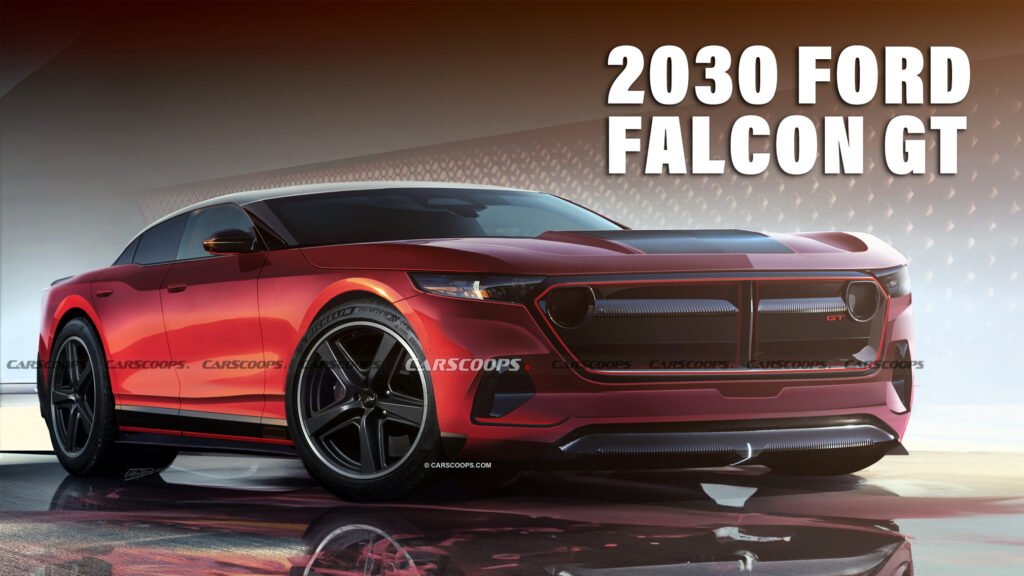The illustrations featured in this article are not related to nor endorsed by Ford.
Australia’s automotive industry abruptly stopped in 2017, marking the end of an era that produced names such as Leyland’s (God awful) P76, Valiant Charger, Holden Torana, Commodore, Monaro and the mighty Ford Falcon. The fall of such manufacturing expertise came in many forms – shrinking production numbers, reduced government support and the unstoppable rise of imported family-friendly SUVs, especially from China.
In Falcon’s case, it ended up an orphan within the Ford empire. The large sedan had no platform in common with any other of Ford’s global models, and the same was true for its fantastic Barra 4.0-litre, turbocharged straight-six powerhouse.
Fast forward to a COVID-infused world with a strong march towards electrification, one wonders if the Blue Oval should resurrect the sedan as a challenger to the likes of Tesla’s Model S and Polestar 5 EV. Curious? Let’s illustratively delve into a “what if” scenario if the Falcon rose like a phoenix.
A Staunch Stance
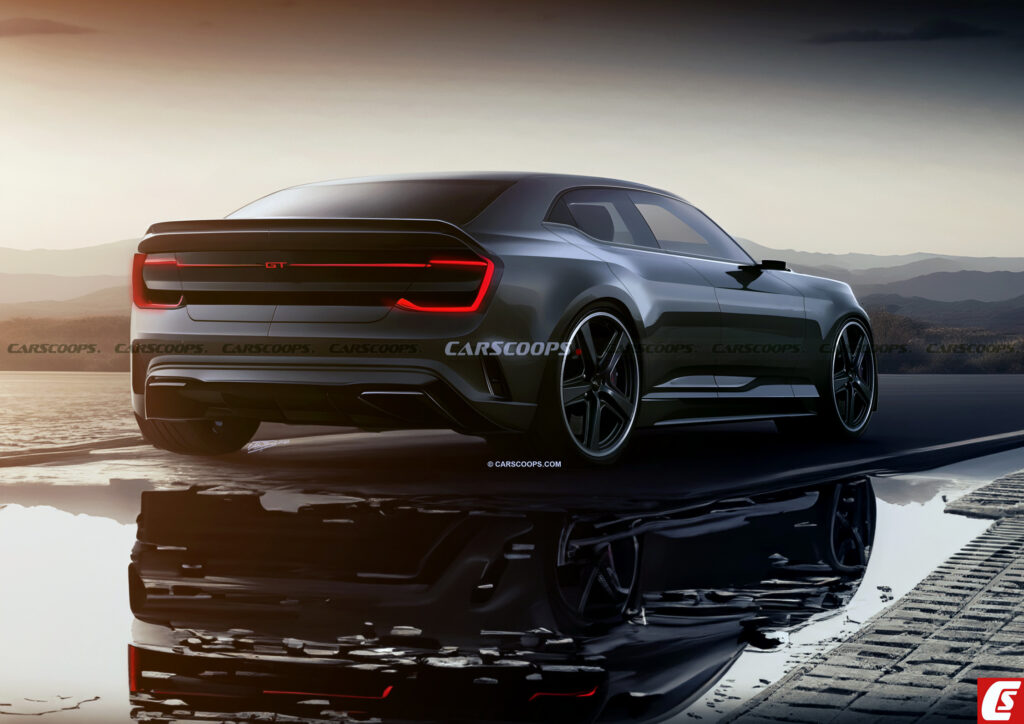
The premise behind this study is to showcase a harmonious blend of legendary Aussie muscle heritage with an aerodynamically modern twist. The frontal view has an oblique grille directing air up and over the hood, flanked by blade DRLs, a front splitter and pumped fenders to maximize the visual punch.
The imposing presence continues down the side, with bold lines and staunch haunches. The roofline has an aerodynamic fastback aesthetic, with an up kick in the shoulder line as it intersects the C-pillars. Rear styling features a segmented LED taillamp arrangement, with a full-wide trunk panel to emphasize a strong stance.
More: Should Ford Resurrect The Iconic Thunderbird Coupe As An EV?
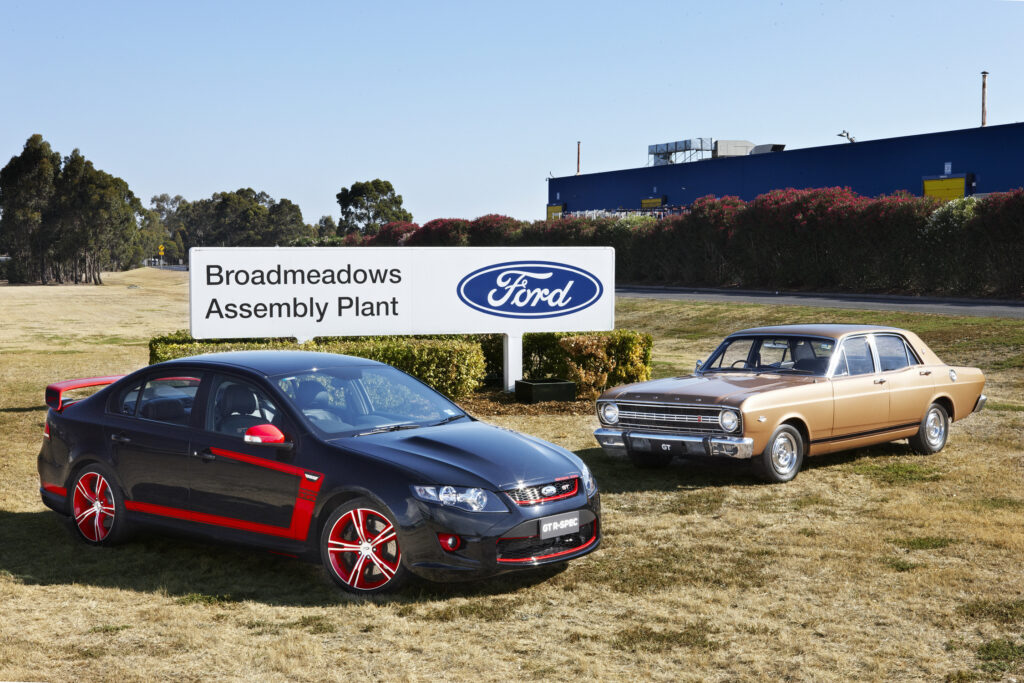
Powerful Outlook
Stepping inside the re-imagined Falcon, occupants would ideally be greeted by a blend of luxury and cutting-edge technology. The driver-focused cockpit would feature heavily bolstered seats, an OLED digital instrument cluster, and an AI-based infotainment system, offering seamless smartphone integration and wireless connectivity.
It would also boast advanced driver-assist systems, including a new generation of Ford’s BlueCruise semi-autonomous capabilities, enabling hands-free driving in certain instances. But the innovation doesn’t stop there – Over-The-Air (OTA) updates would allow continuous improvements and introduce new features, keeping the Falcon at the forefront of automotive technology.
Performance To Stun
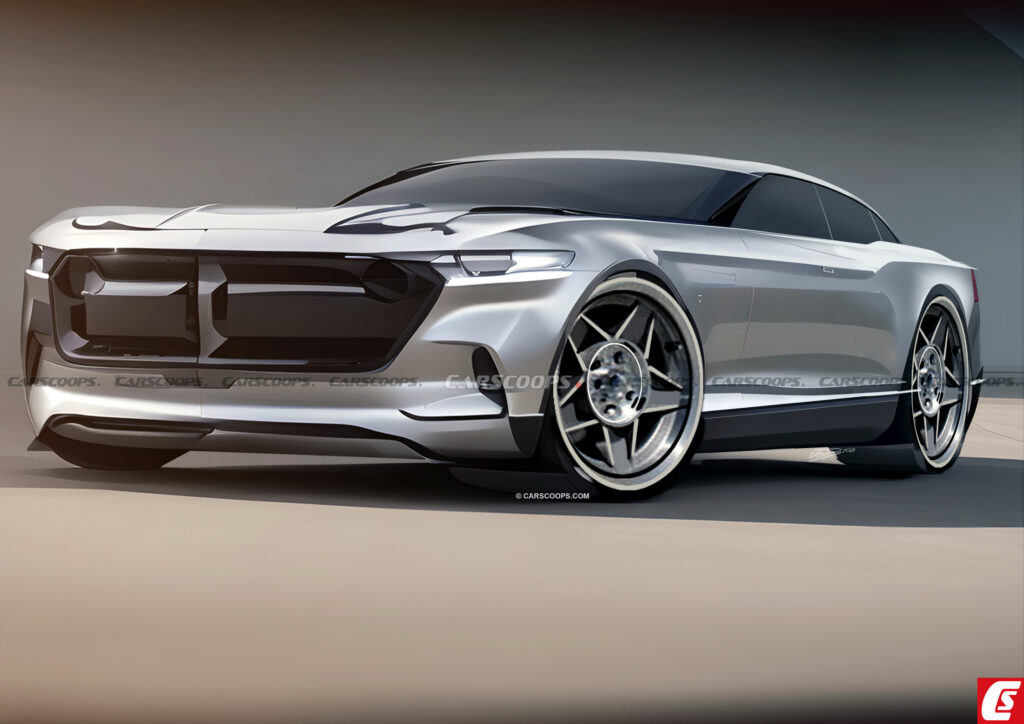
Intriguingly, the Ford Falcon Phase 3 GTHO once claimed to be the fastest-production four-door sedan in 1971. Today, it would be slaughtered in a drag race by family SUVs and hot hatches. Whilst we would all love that iconic V8 magic to return, the reality is that it would need to platform share with another Blue Oval EV as there’s limited scope for a niche ICE-powered sedan in today’s electrified world.
Ideally, this study would feature a single rear-axle electric motor producing a minimum of 222 horsepower (240kW), delivering substantial performance while focusing on range and efficiency. For those seeking throttle-induced whiplash, high-performance HO (Handling Option) versions would employ a dual-motor setup, providing a thunderstruck 617 hp (460kW) and a staggering 850 Nm of torque to all four wheels.
In the name of energy density and thermal safety, this study would skip lithium-ion electron storage for solid-state batteries to ensure ample range, offering capacities exceeding 900 km (560 miles) and providing peace of mind for those with ingrained range anxiety.
Amped Ambitions
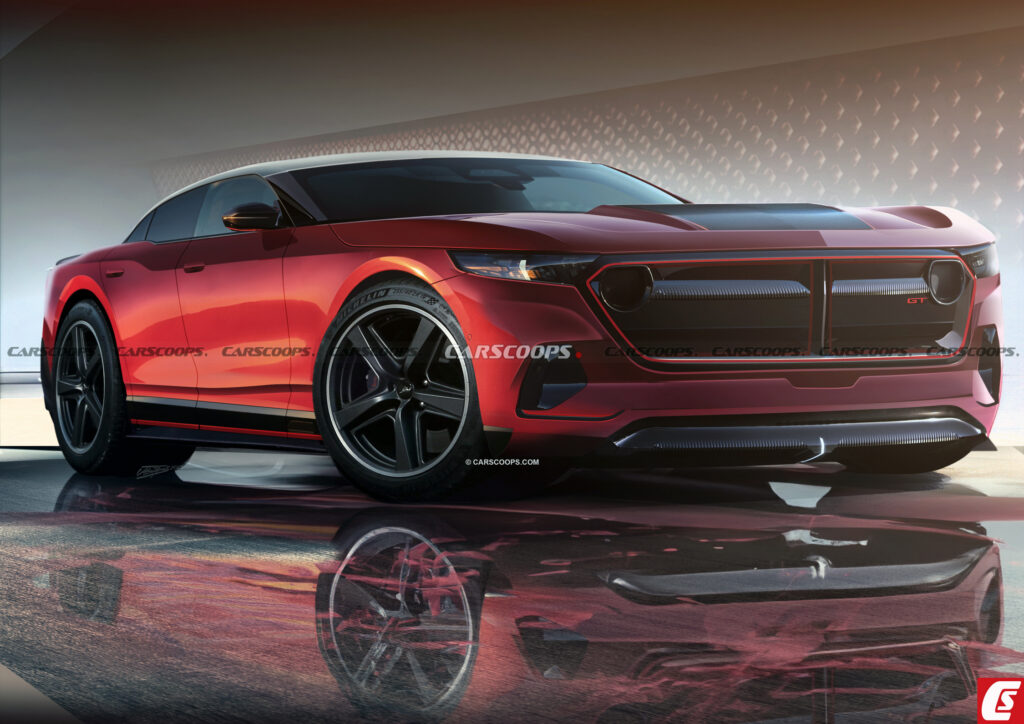
If the Falcon did make a comeback, it would face fierce competition in the all-electric performance sedan segment. The Polestar 5, Dodge Charger Daytona, Tesla Model S, and the upcoming Toyota Crown EV are primary rivals, whilst premium alternatives include the BMW i5, Audi A6 e-tron and Mercedes-Benz EQE.
This writer’s thoughts aside, should Ford bring back the Falcon as an EV sedan for global consumption? We’d love to hear what you think in the comments below.




